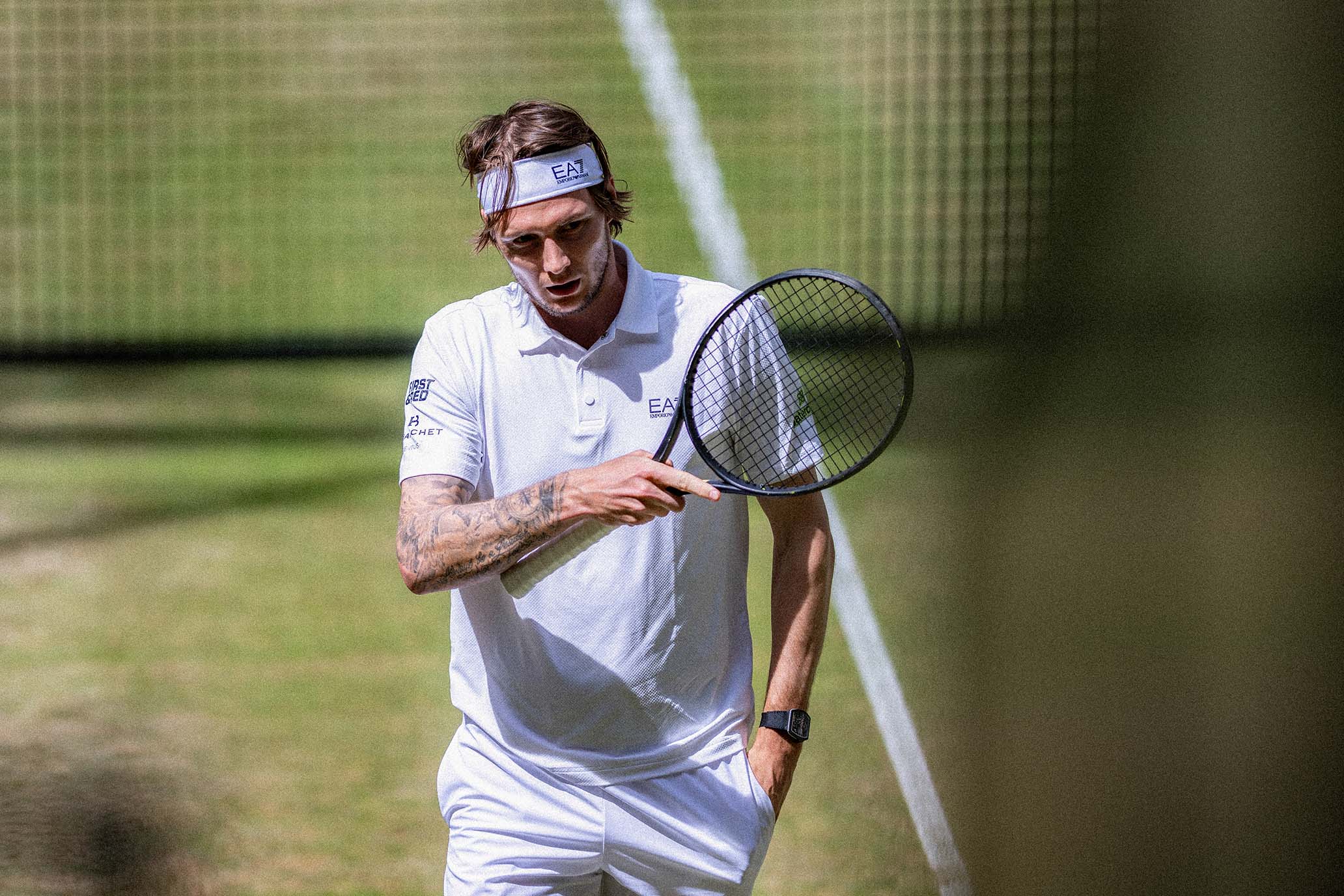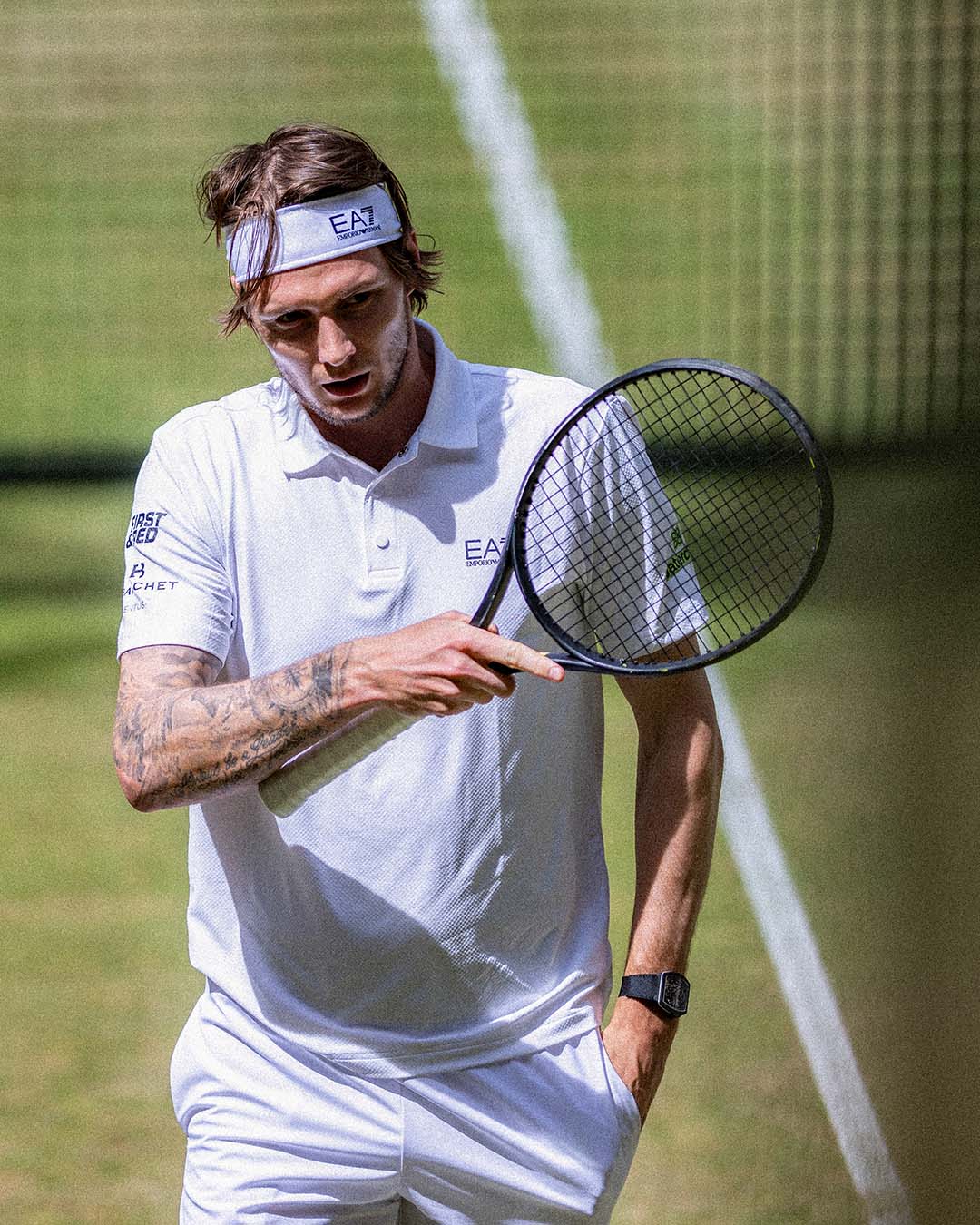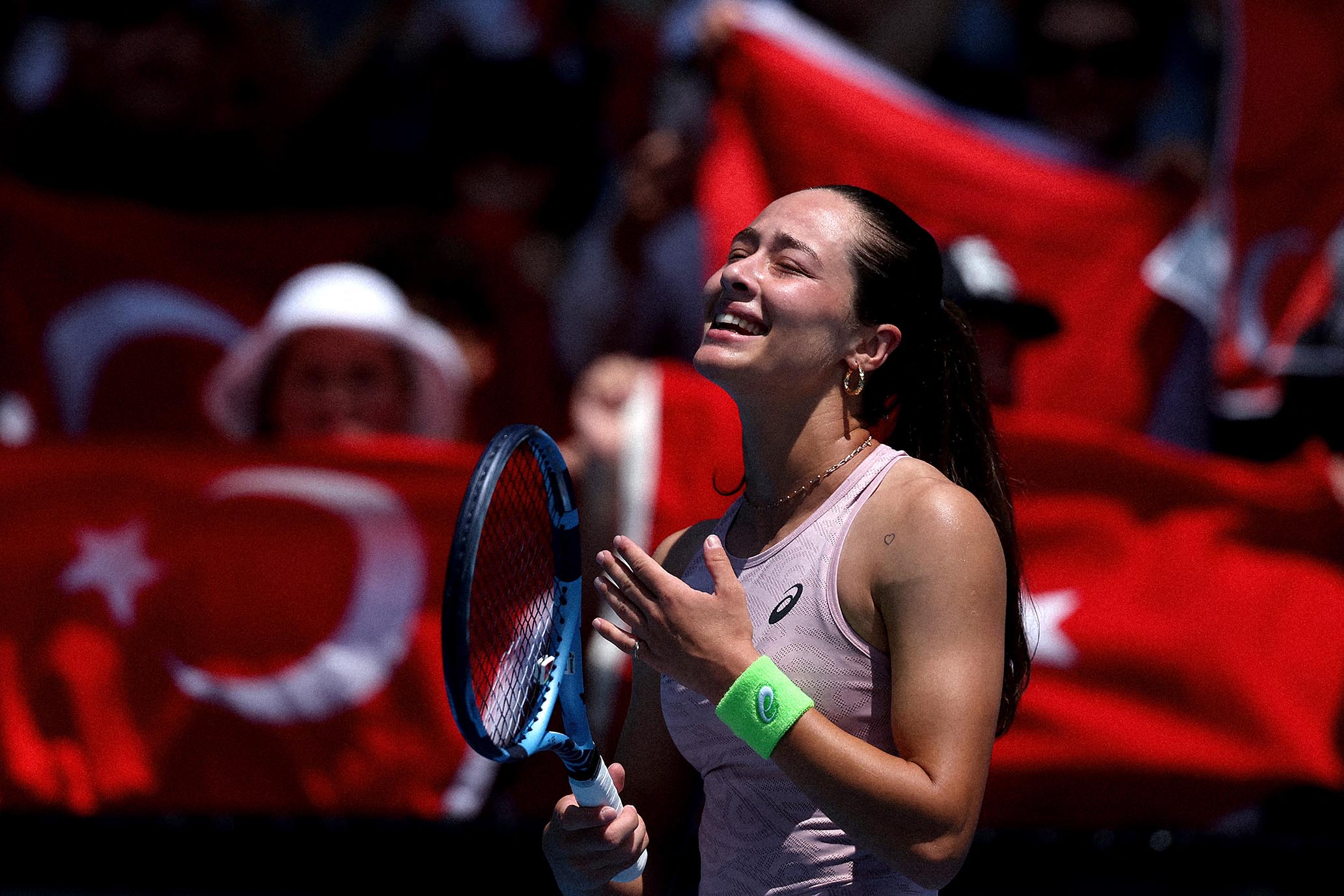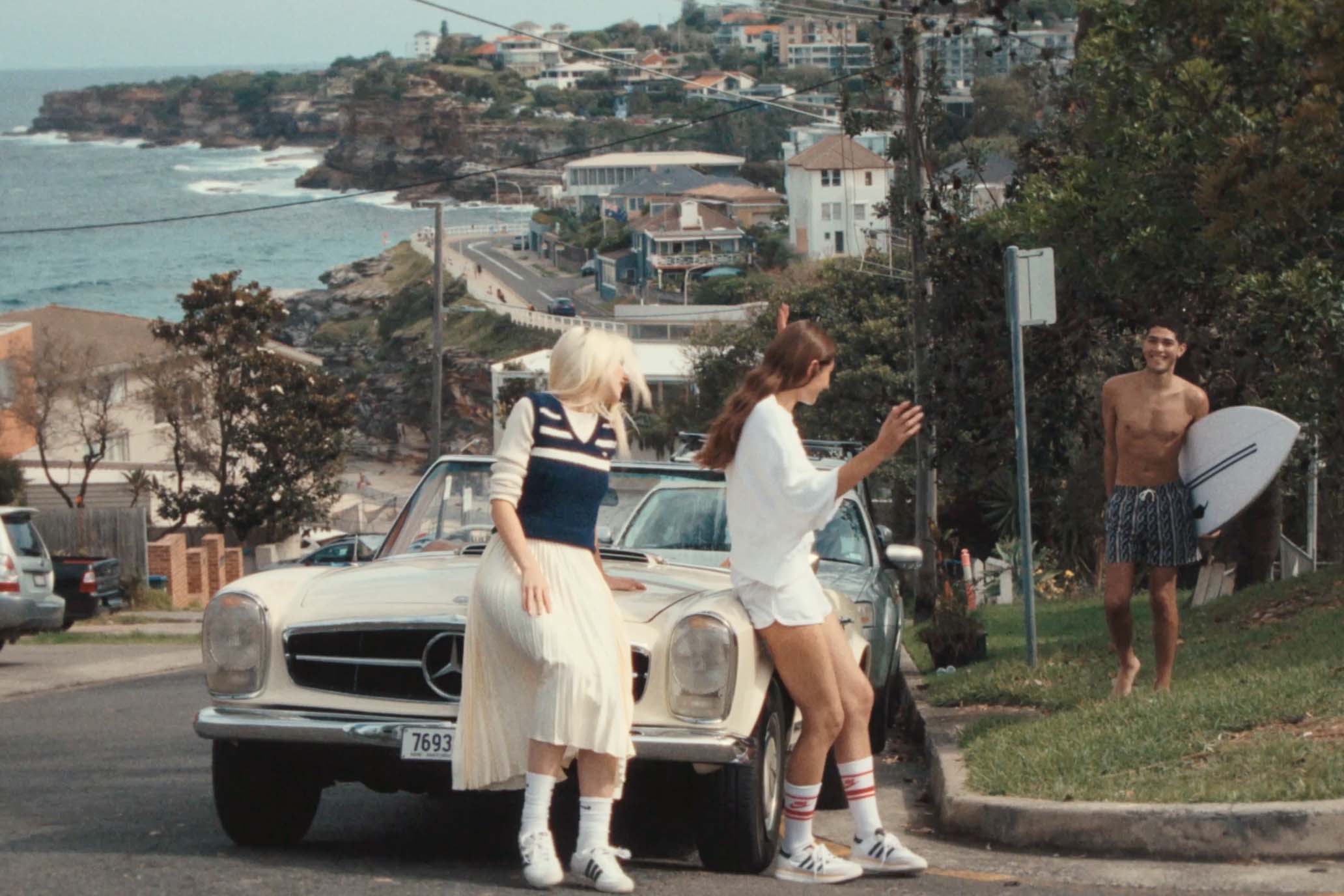Tears of a Clown
Tears of a Clown
For Sascha Bublik at Wimbledon, anything can happen.
For Sascha Bublik at Wimbledon, anything can happen.
By Giri NathanJune 27, 2025

Sascha Bublik during his winning campaign at Halle. // Getty

Sascha Bublik during his winning campaign at Halle. // Getty
On June 19, Jannik Sinner shocked the world, or at least me, a person who’d spent the past year thinking I had him mostly figured out. The No. 1 player in the world released a musical collaboration with the singer Andrea Boccelli. The world-famous tenor delivers his operatic swells in Italian, and Sinner offers wooden bits of spoken word in English. The tennis player opens the song with this invaluable wisdom: “In our lives there will always be many first times. All you have to do is, is [sic] to be yourself.”
Nobody on the ATP follows that maxim—be yourself—more faithfully than Sascha Bublik, the shaggy, smirking showman who represents Kazakhstan. His tennis is an unabashed reflection of his personality: expressive, trollish, darkly comic. He is a tall servebot that has been augmented with surprisingly soft touch. He has a taste for drop shots and trick shots, and a tendency to tank sets or even entire matches; he likes to talk about how much he values his life outside of tennis and doesn’t want to sacrifice too much at the altar of his career. He speaks with awe about the inhuman work ethic of the very top players, and clearly cherishes his own humanness. That archetype might sound a little familiar to you, and yes, he is basically a Nick Kyrgios without the baggage and with an active ATP career. On the same day that Sinner made his musical debut about being oneself, Bublik, always himself, managed to upset the top seed and defending champion at Halle in three sets.
Bublik can beat pretty much anyone if he’s having a good day and they’re having a bad day. But Jannik Sinner has effectively purged bad days from his tennis life. It was the first time since August 2023 that Sinner had lost to a player ranked outside the top 20. It was also the first time since August 2024 that a human being not named Carlos Alcaraz had managed to beat him. For Bublik, this was a career-best upset. He had a dozen top 10 wins but had never before beaten the tour’s No. 1 player. Barely a month earlier, Bublik had been routed by Sinner in straight sets and wrote sarcastically on Instagram: “I almost got him guys.”
After their match in Halle, he offered a pleasant update: “I got him guys.”
Bublik, rarely blessed with consistency, kept marching along after the upset, beating Tomas Machac, Karen Khachanov, and even Daniil Medvedev to reclaim the Halle title that he’d won in 2023. “From the mental point of view, that’s the toughest match I ever played in my life,” said Bublik after the final. In his six previous matches against Medvedev, he had won just one set. “I have never beaten Daniil. He’s a super tough player to play, especially with my game style, and today everything clicked in mentally and physically.”
It has been a season of renewal for the 28-year-old Bublik, who said he considered quitting tennis around this time last year. As recently as this March, he had lost 18 of his previous 22 matches. He fell to No. 82 in the world after Indian Wells. His reasonably secure top-40ish career was in peril. As with so many players, dropping down a rung of competition helped him rebuild some form. His fortunes began to turn at the Challenger in Phoenix, where he made the final. During the clay season, typically his most wretched stretch of the calendar, he picked up a Challenger title in Turin. Clay season concluded with perhaps the most miraculous moment of his career to date: At Roland-Garros, he made his first Slam quarterfinal, beating top 10 seeds Alex de Minaur and then Jack Draper, after which he wept and savored the applause of the crowd. This longtime jester was now taking part in disorientingly sincere interviews about seizing the moment. “You know, sometimes in life there is only one chance, and I had a feeling like that was mine,” Bublik said after the fourth-round Draper win at Roland-Garros. “I couldn’t let it slip. So, standing here, this is the best moment of my life. Period.” I received texts from friends who were enjoying their first-ever exposure to Bublik. And it must have been nice. But those tears were even richer, emotionally, if you’d witnessed the dozens of clownish episodes in the years leading up to that point. (I highly recommend his conversation with Casper Ruud and Benoit Paire, and in particular his phrase “Check the fact sheet,” if you want a better sense of Bublik’s life philosophy.)
That life-peak run at Roland-Garros was ended unceremoniously by Sinner; Bublik has already exacted his revenge on grass. Now he is about to enter Wimbledon as a No. 28 seed that no player wants to see in his draw. Bublik’s best surface is grass, where his big serves and skidding off-speed shots grow more lethal. In his runner-up speech at Halle, Medvedev openly asked his peer to eliminate Sinner or Alcaraz from the Wimbledon draw, opening things up for everyone else’s sake. On the lawns of southwest London, Bublik could sputter out in round 1, or he could defeat two top 10 players. Both outcomes feel equally possible to me at this moment. Therein lies the Bublik magic.

PURE, ORIGINAL TENNIS — SIGN UP!
RECOMMENDED
The 2026 Australian Open Shoe Report
SHOE REPORTS
Zeynep Sonmez Brings the Ruckus
AUSTRALIAN OPEN
Mixed Doubles
OPEN TENNIS — VOLUME 2



